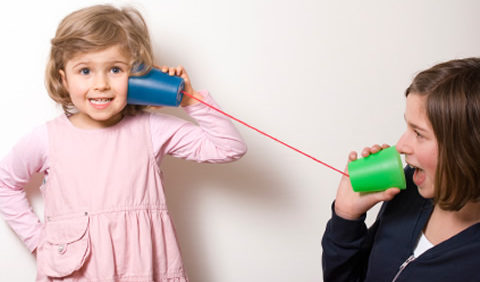
Expressive language is the way a child expresses themselves.
Expressive language is the talking.
Preschoolers are known for their talkativeness.
It can often feel like they could talk under water sometimes and sometimes it’s hard to get a word in to have a conversation with them but it is important for them to be so talkative.
Generally at this age their sentences are becoming grammatically correct, however, they will have some mistakes.
They will use sentences of between 4-8 words in length and will often use words such as ‘and’ and ‘because’.
Expressive language is how children express their thoughts and feelings, ask questions and have a conversation.
Expressive language is what a child says.
Expressive language in a child
- How many words they say regularly.
- How they speak in sentences.
- Their grammar.
- Use of language in age appropriate ways, for example their sentences are long enough or complex enough according to their age.
- The use of language for various purposes, such as questions, requests, comments, etc.
- They will retell a story and be descriptive and have a large vocab.
You can use their use of expressive language to gauge where your child is at on a general level developmentally.
What to do if a child lacks expressive language skills
It is a good idea to seek help to assist them to reach their potential.
Indicators for seeking assistance:
If a child is not achieving skills within 3 months of their age range then it is recommended to seek help.
Alternatively if you have a concern it is OK to check for reassurance or to obtain assistance.
Here are some general indicators that they may not be developing at the appropriate rate and may need assistance for a preschooler.
- The child only speaks in 2-3 word sentences.
- All their sentences are grammatically incorrect.
- They struggle to tell or re-tell experiences or stories.
- Their vocab is limited.
- They rarely ask questions.
Expressive language difficulties
If a child has expressive language difficulties, they may find it hard to one or more of the following:
- Developing a wide vocabulary of specific words.
- Putting words together in the right order to form sentences and the generally tend to continue as they age to use only simple sentences.
- Use correct grammar such as confusing past tense or plurals such as he/she”, “him/her”, difficulty using words such as “is/are”.
- They may have difficulty in using age appropriate grammar (e.g.” He went to school” rather than “Him goed to school”).
- They may have difficulties in being able to put events into the right sequence to tell a story and/or in pictures too.
- Difficulty in retelling a story and as they grow older writing stories.
- Using the correct word or finding an appropriate word to use when speaking.
- They may have difficulty explaining just what they mean.
Strategies to support a child develop expressive language
- Take note of how else your child is communicating. You may find that they are using facial expressions, gestures or movements over words.
- Encourage eye contact when talking with them.
- Talk about things that are interesting to the child as this will promote communication.
- Expand on your child’s remarks. This lets them know you are listening and shows them ways to put words together. For example if the child has said ” doggy run” then you can expand on it by saying ” yes, the doggy is running fast”.
- Try to identify a word in their conversation and use that word to encourage them to continue to talk or try again. For example, if you caught only the word doggy in what they said then you could say “tell me more about the doggy”.
- Acknowledge their frustrations as much as their attempts. You can acknowledge by saying “you’re trying hard can you tell me again”. This lets them know you are listening and value what they have to say and it is in a positive way. They will be more likely to repeat and/or try again.
- Use action songs and rhymes.
- Talk about what they are doing now (the here and now) rather than what they did yesterday or about something not in front of them.
- Use sentences or phrases that are just a little above their language level. So if the child uses 1 word sentences you could model a more complex sentence. This will help to show the child how to build on their language and promote positive language skills.
- If a child makes an error it is important not to correct them. It is much more positive to rephrase it and model the correct way back to them rather than correct them. For example if the child said “me ated it” you could reply with ” That’s right, you ate it all”.
- Repeat if necessary.
- Remain calm. Getting frustrated and/or showing frustration is counter productive.
- Simplify it if necessary.
- Provide choice in your question so that it is also providing them with an answer rather than just the question. For example, ‘What were you doing? Were you sleeping or relaxing?” It also focuses on the question and means that it is not a simple yes/no response so at the same time promotes language.
- Take turns.
- Model.
- Encourage imitation.






